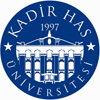| From the Desk of the Editor |
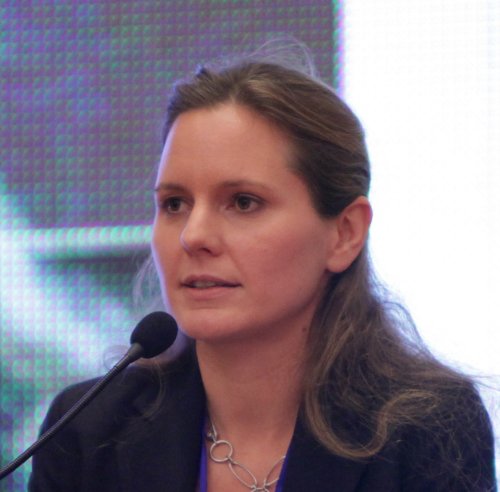 |
This issue of TPQ focuses on the interrelated themes of energy geopolitics, sustainable growth, political reform, and environmental protection in Turkey's neighborhood, from the Caspian across the Black Sea and the Mediterranean. . . .
|
| Read More. . . |
|
The Mediterranean: A Symbol of Wounds and Hopes
Prince Albert II |
 |
The Mediterranean has always been at the heart of major upheavals of history because of its geographical position at the crossroads of Europe, Africa, and Asia. At the present time, it epitomizes most of the dangers affecting our planet. In the Mediterranean, every landscape reminds us of the legacy for which we act as guardians. I believe that none of us can ignore this compelling duty that makes us a mere bridge between the generations that have come before us on the shores of this sea and those that will follow us tomorrow. Today, the environmental future of the Mediterranean is threatened by global warming, the alarming erosion of biodiversity, and the reduction of freshwater resources in the region. These phenomena have not yet reached an irreversible stage ? therefore effective action can and must be displayed now.. . . |
| Read More. . . |
|
Cities and Sustainability
Kadir Topbaş
|
| Cities play a crucial role in the successful implementation of sustainable development policies. The Metropolitan Mayor of Istanbul outlines the
steps taken to render this important city more environment-friendly ? from protection of water resources to energy conservation. Besides pointing out the responsibilities of local governments in protecting cultural heritage and developing skills relevant to urban living and productivity, the Mayor underlines the importance of local governments for global concerns, such as climate change. . . |
 |
| Read More. . . |
|
Economic Development and CHP's Perspective
Faik ?ztrak
|
 |
During the last decade in which the AKP government has been in power, the Turkish economy's average growth rate was relatively high but not above the long run historic level. A structurally high current account deficit, excessive reliance on one time revenues, fundamental weaknesses in the social and governance domains curtail Turkey's development prospects. The CHP puts forward a potent sustainable alternative strategy based on a coherent set of employment and environment friendly, competitive, equitable and stable high growth policy instruments. It configures a responsible regulatory framework for a corresponding dynamic market mechanism. This strategy at the same time encompasses good governance, transformation to the knowledge economy and convergence to the EU.. . . |
| Read More. . . |
|
Turkey?s Dramatic Shift toward Iraqi Kurdistan
Matthew J. Bryza
|
| Ankara's dramatic and positive shift toward Erbil is driven primarily by its aim to elevate its credentials as an energy transit hub, but is also in line with the AKP's policies towards the domestic Kurdish issue. Regardless of the position of Washington, Ankara and Erbil now perceive their political interests as synchronizing with their longstanding economic interests. Yet Turkish and KRG authorities must still need to take a series of bold political decisions ? such as either to accommodate or confront Iraq's federal government in Baghdad. Moreover, if Syria breaks apart and an autonomous Kurdish region that favors pan-Kurdish unity emerges, Ankara may rethink its political decision to hold Iraqi Kurds close as economic partners. . . |
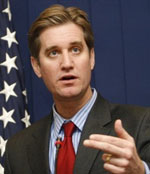 |
| Read More. . . |
|
Where is Tunisia heading?
Lotfi Maktouf
|
 |
First it was a civil revolt carried out by an unstructured civil society movement, not inspired by any ideology or leader ? not even the Islamist agenda. The months following the "Jasmine Revolution", many were surprised by a colossal Islamist wave crystalized in the Ennahda organization. This wave, with its ferocious and unexpected might, overwhelmed the Tunisian society and institutions as only a tsunami could. Today, Tunisia is set to choose between building an open, pluralistic and a development-driven Arab and Muslim society, or, slipping irreversibly into an Islamist, totalitarian and a backwardlooking model. Only civil society can prevent the latter from happening, and the legitimate and democratic aspirations once thought attainable from evaporating. . . |
| Read More. . . |
|
Baku-Tbilisi-Ceyhan?s Gas Legacy
John Roberts
|
| A decade or so ago, the questions of how to get the bulk of Azerbaijan's oil and gas to Western markets led to historic decisions to build both the Baku-Tbilisi-Ceyhan (BTC) and the Baku-Tbilisi-Erzurum (BTE) export pipelines. The need for a dedicated line to carry Azerbaijani gas across Turkey to Southern and Central European markets has been consistently underlined by SOCAR and European counterparts alike. Now the partners developing Azerbaijan's giant Shah Deniz gasfield are moving inexorably towards implementation of a massive production project, TANAP. There are still unsettled issues, however, such as which pipeline will carry the gas from Turkey onwards to Europe, and how the BTE segment will be upgraded. . . |
 |
| Read More. . . |
|
Gas Games in the Eastern Mediterranean
George Stavris
|
 |
A long-running speculation over massive natural gas reserves in the tumultuous area of the Southeastern Mediterranean became a reality in December 2011 and the discovery's timing along with other grave and interwoven events in the region came to create a veritable tinderbox. The classic "Rubik's cube" puzzle here is in perfect sync with the realities on the ground and how this "New Energy Triangle" (NET) of newfound and traditional allies' actions (Cyprus, Greece and Israel) towards Turkey will shape and inevitably affect the new balance of power in this crucial part of the world. . . |
| Read More. . . |
|
Iraq: Turkey's Energy Trump Card
Aura Sabadus
|
| Turkey's impressive economic growth has been fueled by soaring energy consumption which is likely to continue over the years to come. However as Turkey risks to increase its current account deficit by five billion dollars with each ten dollars added to the current price of oil, its import-reliant energy bill is becoming unsustainable. Assessing domestic challenges against emerging regional and international opportunities, this article will argue that Turkey can secure more profitable terms for its fossil fuel imports, providing it reconsiders its foreign policy options. In this context, a politics of engagement with northern and southern Iraq may help Ankara gain greater strategic lever in its relationship with traditional oil and gas suppliers, such as Russia, Iran, and Azerbaijan. . . |
 |
| Read More. . . |
|
American Investment in post-Mubarak Egypt
Spencer Smitherman & Asbed Kotchikian
|
 |
This article aims at forecasting the future of American enterprise in post-Mubarak Egypt by examining U.S. economic, political, and military interactions over the past half century in the Middle East. Egypt has been a long-time ally of the United States and this relationship has acted as a conduit between Western powers and the remaining nations of the Middle East. Since the 1979 Israeli-Egyptian Peace Treaty, the United States has helped sustain the Mubarak regime both economically and militarily. Although this stimulus has fostered goodwill with previous governments, it is yet to be seen whether or not the new ruling powers will, in retrospect, view these contributions as having funding a totalitarian regime or as an investment in Egypt's future in a post-Mubarak era. . . |
| Read More. . . |
|
Turkish-American Business Partnership
Serkan Elden & Michael A. Lally
|
| Since the 1990's, American as well as other global firms have seen Turkey as an excellent platform from which to launch into regional markets, including Russia, Central Asia, the Middle East and Africa. U.S. firms have an opportunity to utilize their global brand power and match them with Turkey's buoyant market and its vast growth-market oriented management and executive skills to tap both pan-regional Eurasian and global growth opportunities. In this equation, the opportunity for Turkish firms is to partner with powerful global brand-houses of U.S. firms to expand their penetration in various markets. . . |
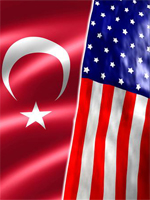 |
| Read More. . . |
|
The Nuclear Question in Turkey
Aaron Stein & Şebnem Udum
|
 |
The regional security dilemma stemming from Iran's nuclear program has led many to speculate about whether or not Turkey will opt to pursue a nuclear weapons capability. Since 2006, Turkey has been named as one of the states likely to seek out nuclear weapons if Iran were to decide to develop its own nuclear arsenal. These assumptions, however, do not account for Ankara's long held and consistent policies on nonproliferation and nuclear weapons. This paper explores Turkey's approach to nuclear issues and identifies the numerous constraints a Turkish leader would face when making the decision to pursue for a nuclear weapon. . .
|
| Read More. . . |
|
Between Energy and Soft Pan-Turkism
Adam Balcer
|
| After the dissolution of the Soviet Union, Central Asia and Azerbaijan became a key arena of competition between global and regional powers in Eurasia. Though Turkey is one of the most important players in the region, it remains second rank. Due to its economic and demographic rise, however, Turkey could gain the potential necessary to become a key player in the coming years. Whether Turkey will be able to use this potential to its full extent will depend on the way it copes with several serious internal challenges, as well as its ability to play a role of a key transit route for gas and oil exported from the region. . . |
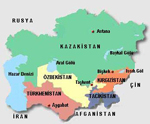 ; ; |
| Read More. . . |
|
A New Political Set-up in Russia?
Jakub Kulhanek
|
 |
Putin's return to the presidency has been orchestrated as the resounding confirmation of the system of creeping authoritarianism and crippling political patronage he created during his first two terms in office. It dispelled any hopes of change that many, both at home and abroad, saw in the one term presidency of Dmitri Medvedev. The article looks at the broad sweep of recent developments in Russian politics in order to extrapolate main trends, which are likely to shape Russia's domestic situation as well as its foreign policy in the next decade. It concludes that although the much-desired semblance of stability has returned for the time being, by ignoring some deep structural flaws of the present system, the ruling regime might precipitate its own demise in the long run. . . |
| Read More. . . |
|
|
|
|













 ;
;
